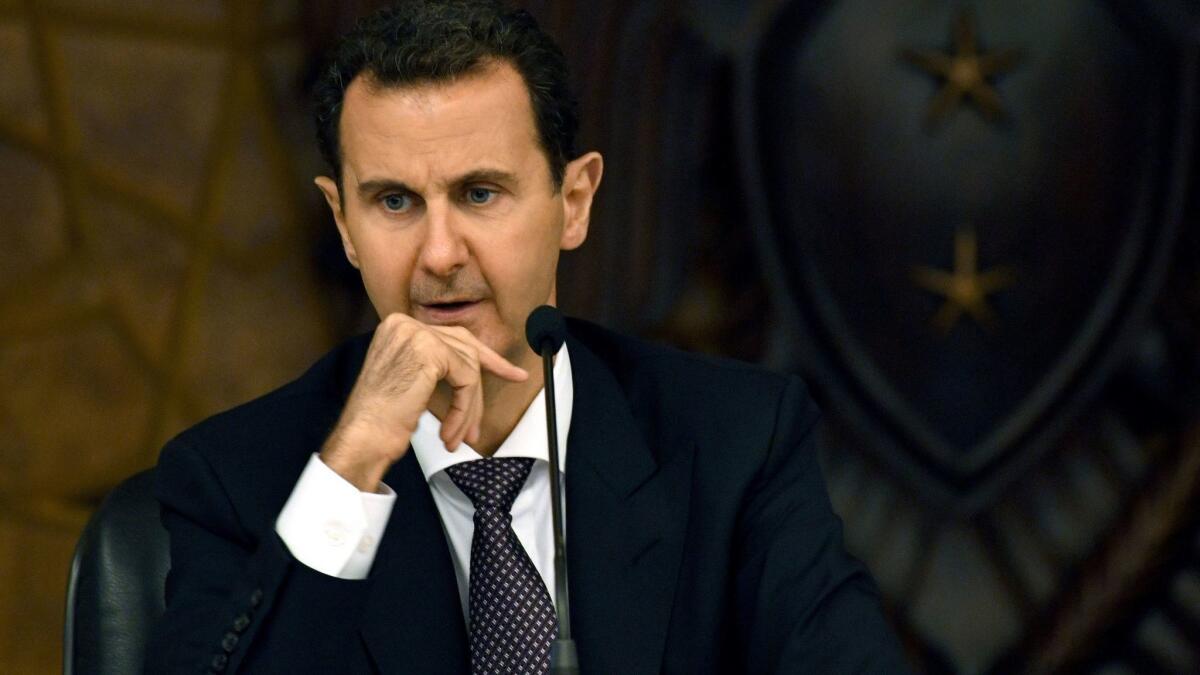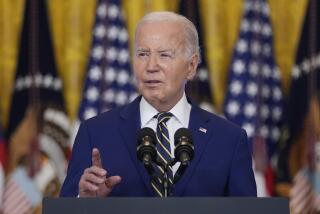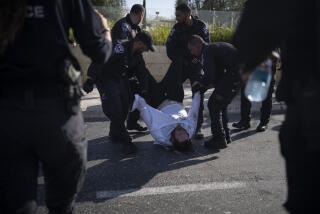Syria’s Assad grants amnesty to army deserters and draft dodgers

Reporting from Beirut — The Syrian government Tuesday announced an amnesty for army deserters and those who avoided military service, a gesture that could draw thousands of refugees who fled violence back to the country.
Syrian President Bashar Assad issued the decree, granting “a general amnesty from all punishment” to deserters inside and outside the country, said the state-run Syrian Arab News Agency.
The amnesty applies to those who “turn themselves in” within four months if they are in Syria or within six months if they are abroad, according to the decree. It does not include defectors who have fought against the government.
Syrian men over 18 must serve in the army for two years unless they are university graduates, who are required to serve 18 months. Desertion and draft dodging carry stiff punishments, including years of imprisonment, extension of military service and fines.
Elie Samaan, an official with the Reconciliation Ministry, said the amnesty helps deserters and draft dodgers by canceling punishment, but that military service is still required.
“Soldiers who deserted or those who avoided conscription often send relatives to the ministry asking for a special clemency. Now there’s no need for that,” Samaan said in a phone interview Tuesday.
Tens of thousands of security personnel deserted after war started in Syria in early 2011. Army and intelligence officers would post a declaration of defection on social media sites such as YouTube, often announcing they had joined the opposition’s nascent insurgency under the banner of the Free Syrian Army or Islamist factions.
As army casualties mounted and people fled the violence, the government intensified its recruitment drives: It placed billboards exhorting people to join the fight, created all-volunteer paramilitary groups as well as privately funded militias and set up road checkpoints to ensnare draft dodgers. It also kept troops fighting well beyond the two-year period.
Fighting-age men in Syria, fearing that enlistment would be effectively a death sentence, would pay thousands of dollars to be smuggled out of the country or have their names expunged from recruitment lists.
Many of those who couldn’t afford to pay to leave the country would join paramilitary groups or live in hiding, and men living abroad often stayed away for fear of being caught.
The edict comes as part of a larger effort by the Syrian government to bring back the 5.6 million registered refugees residing outside the country and reintegrate about 6.1 million internally displaced people.
In recent months, the government has coordinated with neighboring Lebanon and Jordan to facilitate convoys of tens of thousands of returnees, while embassies have held conferences and events explaining procedures and reassuring potential returnees they would not be punished.
Those who have fought as part of the rebels’ cadres — viewed as terrorists by the government — would fall under a different so-called reconciliation agreement that would grant them amnesty as long as they abandoned their arms and pledged not to fight the state again.
As the government picked off one rebel enclave after another, hundreds of thousands of fighters, along with their families, refused the offer, fearing punishment as well as forced conscription.
Samaan said militants would be included in the amnesty once they reconciled with the government.
Russia, a key ally of the Syrian government, said it supported the move to draw people back to the country.
“Touching on the issue of pardoning deserters, probably, this is a step toward national reconciliation, toward creating conditions which would suit those refugees who want to come back to Syria and internally displaced persons,” Russian Foreign Minister Sergei Lavrov said Tuesday, according to Tass news agency.
“We actively encourage this determination of the Syrian leadership.”
The amnesty demonstrates Assad’s growing confidence that the fighting is drawing to a close with him as the victor.
“Before [this year] it was a vicious war, so many people were afraid to join the army. Now the war is practically at its end, which means enlisting is no longer such a fearful situation,” Samaan said. “We expect we’ll have very large numbers taking advantage of the amnesty.”
Twitter: @nabihbulos
More to Read
Sign up for Essential California
The most important California stories and recommendations in your inbox every morning.
You may occasionally receive promotional content from the Los Angeles Times.











